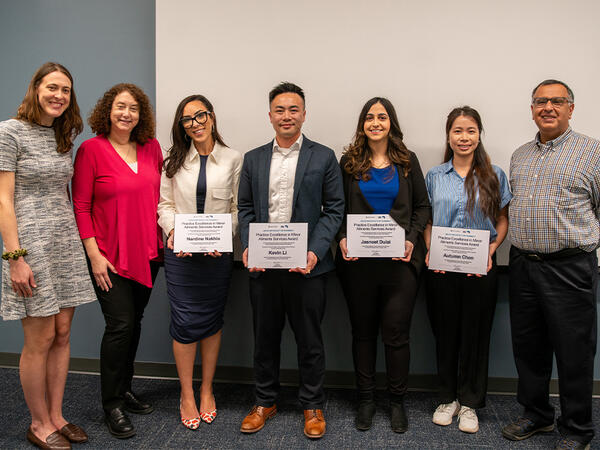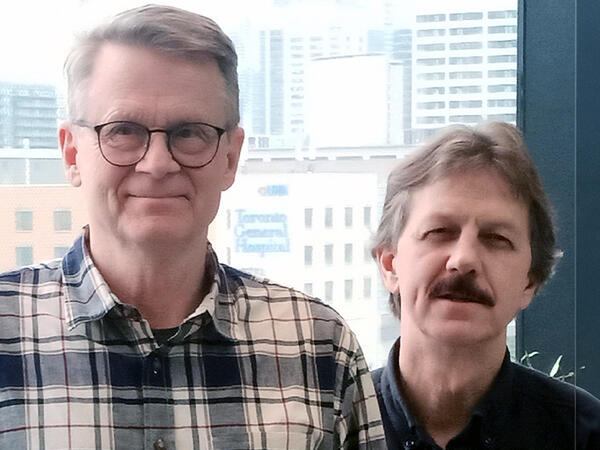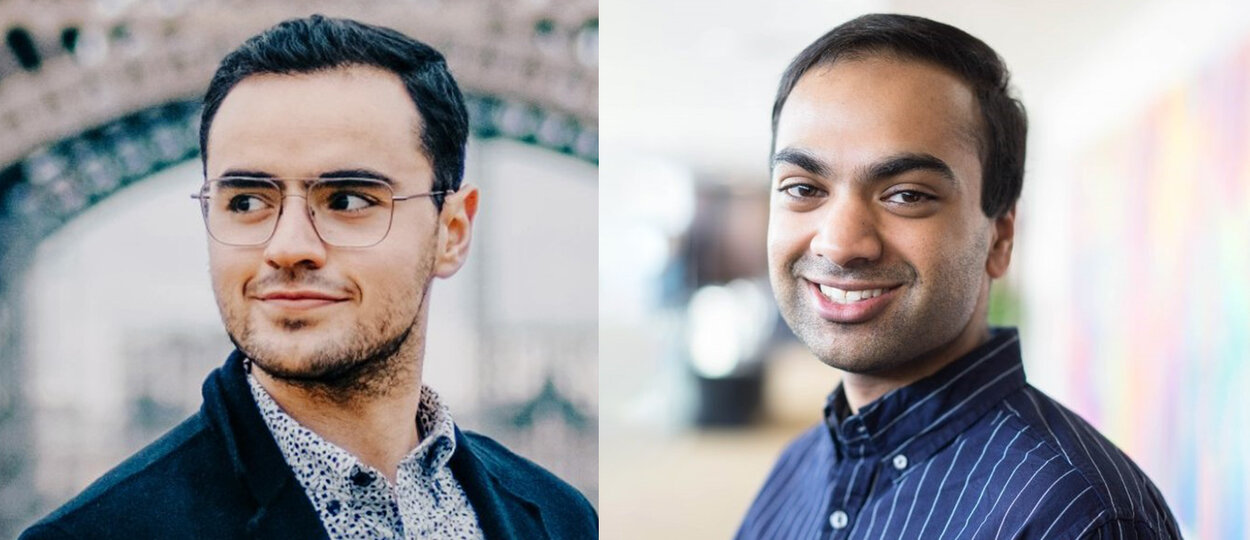Max Yaghchi (left) and Narthaanan Srimurugathasan, both PharmD graduates in 2020, co-founded Pharmacy Awareness of Indigenous Health in 2018
Pharmacy Awareness of Indigenous Health centres on awareness of health care barriers and cultural competency
A student-led organization at U of T’s Leslie Dan Faculty of Pharmacy is increasing awareness of Indigenous health and cultural competence among student pharmacists.
Pharmacy Awareness of Indigenous Health (PAIH) shares resources to educate students about barriers that Indigenous people often face in health care and has partnered with Indigenous organizations to deliver education on health care topics.
“As pharmacy students we want to do good, but we need to be mindful that working in a health care setting is not the same as doing good for a community,” said Max Yaghchi, co-founder and former executive member of PAIH. “Simply providing a service might not be enough for our patients, especially those facing health care barriers, and we need to be more patient-centred.”
Yaghchi and Narthaanan Srimurugathasan, both PharmD graduates in 2020, co-founded PAIH in 2018. As non-Indigenous students, they wanted to complement the topics explored in the third-year elective focused on Aboriginal health and healing, and offer opportunities for students who didn’t take the elective to learn about Indigenous health and increase their cultural competency.
PAIH’s executive members, who have all been non-Indigenous, share resources and articles focused on Indigenous health care — particularly as they relate to barriers to access such as prejudice, racism and lack of cultural understanding.
They also connect pharmacy students with cultural events led by Indigenous student groups at U of T and other organizations.
“We wanted to go further than just health care and to have more of a human connection and an opportunity for pharmacy students to grow in different areas, like cultural competency,” said Yaghchi. “A lot of the resources we share are from Indigenous people and organizations so students have access to their expertise.”
The group has also undertaken larger initiatives to bridge the gap between pharmacy services and Indigenous people. They have presented to staff at the Native Canadian Centre of Toronto about opioid use and naloxone kits, as well as to Native Child and Family Services of Toronto about sexual health. In both cases, staff from the organizations reviewed the presentation in advance to ensure it was culturally appropriate.
One of the group’s biggest initiatives has been creating infographics to increase awareness of the Non-Insured Health Benefits (NIHB) program for First Nations and Inuit people. This federally funded program covers the costs of prescription medications, medical supplies, devices and equipment, as well as eligible over-the-counter products recommended by a pharmacist.
As a student, Yaghchi worked with Kenny Tan, assistant professor at the Leslie Dan Faculty of Pharmacy and faculty liaison of the PAIH, in a community pharmacy near the Native Canadian Centre of Toronto. They served a significant Indigenous population and were familiar with the NIHB program, but many pharmacists are not.
To raise awareness, PAIH partnered with Whole Health Pharmacy Partners to develop infographics for both pharmacists and Indigenous patients that easily and visually explain the program and what is covered.
The infographics have been translated into French and shared nationally, and have been included in various courses at the Leslie Dan Faculty of Pharmacy and University of Waterloo pharmacy school. The PAIH recently ran a fundraiser to translate the patient-facing infographics into Cree and Ojibway.
While PAIH aims to improve understanding among non-Indigenous pharmacists, Yaghchi says that the group’s long-term vision is that more Indigenous students will pursue careers in pharmacy — both of which will improve patient care.
“As non-Indigenous people, we need to do our part to build a relationship between pharmacy and the Indigenous community,” said Yaghchi. “Maybe through a better understanding of Canada’s history with Indigenous people and how non-Indigenous people have benefited, we can think about what we can do to give back.”
“Ideally, more Indigenous people are represented in pharmacy so that they can share their culture, what they want and what they think is the best course of action for Indigenous patients.”
More News
Image

Advancing innovation in minor ailments care
Forum highlights pharmacy’s role in innovation, research, and policy change.
Read More
Image

Jeffrey Henderson Receives Prestigious Connaught Innovation Award
Award will support research to advance novel method of modifying cells for testing new gene therapies.
Read More
Image

Dean Lisa Dolovich reappointed for second term
Professor Lisa Dolovich has been reappointed for a second term as Dean of the Leslie Dan Faculty of Pharmacy, University of Toronto, effective July 1, 2025, to December 30, 2030.
Read More
